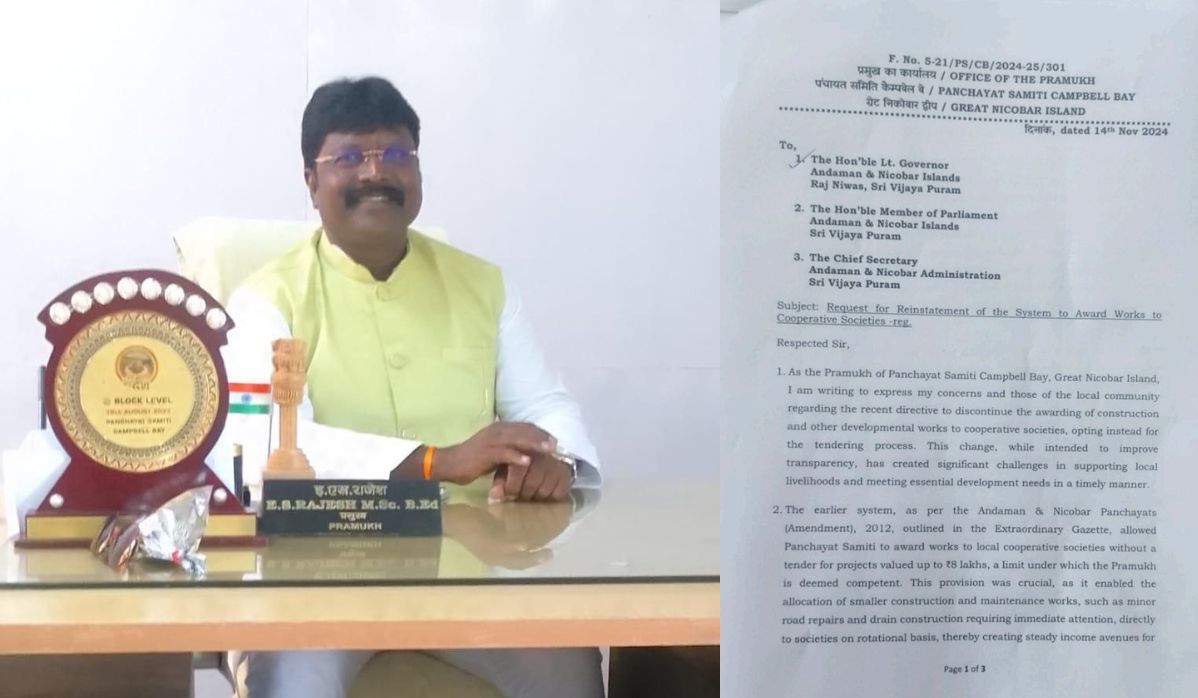Tarun Karthick
Campbell Bay, 19 November 2024
Mr. E.S. Rajesh, the Pramukh of Panchayat Samiti, Campbell Bay, has formally appealed to the administration to reconsider the recent policy change that discontinues awarding construction and developmental works to local cooperative societies on roster basis. In a letter addressed to the Lt. Governor, Member of Parliament, and Chief Secretary of the Andaman & Nicobar Islands, Rajesh highlighted the significant impact this directive could have on the livelihoods of the local community and the timely execution of essential projects.
Under the previous system, as per the Andaman & Nicobar Panchayats (Amendment), 2012, Panchayat Samitis were authorised to award projects valued up to Rs. 8 lakhs to local cooperative societies without a formal tendering process. This provision enabled the prompt allocation of smaller yet critical projects like road repairs and drain construction, creating steady employment opportunities for local workforce.
Rajesh highlighted that the move to a tender-based system could lead to significant delays, especially for smaller projects that may not appeal to larger contractors due to their low-profit margins. He emphasized that cooperative societies, made up of local members who are invested in the welfare and development of their community, have consistently delivered quality work on time. Additionally, he noted that these societies have played a crucial role in maintaining the region’s economic stability.
Rajesh also expressed concerns that larger, external contractors, under the new tendering process, may not prioritise community involvement, potentially undermining both local economic development and the region’s social fabric. He appealed to the administration to find a balance between transparency and local empowerment and urged the reinstatement of the previous roster-based system to ensure that cooperative societies can continue contributing to local development while gradually adapting to a more competitive environment.
In conclusion, Rajesh emphasised the importance of maintaining the efficiency and responsiveness of public works, particularly for urgent infrastructure needs. He called on the administration to consider the adverse effects of the new policy on both local livelihoods and the timely completion of essential public projects.
The letter was also copied to the Secretary (Rural Development & Panchayats) and the Director (Rural Development & Panchayats) of the A & N Administration.

